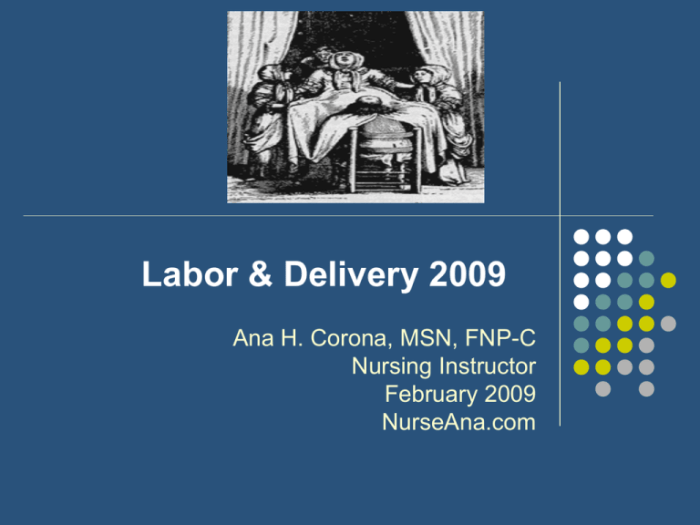Can lvns work in labor and delivery – Exploring the intricate role of Licensed Vocational Nurses (LVNs) in the dynamic field of labor and delivery, this comprehensive guide delves into their scope of practice, skills, patient care responsibilities, ethical considerations, and future trends.
With meticulous research and expert insights, this article unveils the intricacies of LVN practice in labor and delivery, empowering healthcare professionals, educators, and aspiring LVNs with a deep understanding of their capabilities and contributions.
Scope of Practice: Can Lvns Work In Labor And Delivery

Licensed vocational nurses (LVNs) play a vital role in healthcare delivery, providing essential patient care under the supervision of registered nurses (RNs) or physicians. Their scope of practice encompasses a range of responsibilities, including:
- Monitoring vital signs and assessing patient status
- Administering medications and treatments as prescribed
- Providing wound care and dressing changes
- Assisting with diagnostic procedures and tests
- Educating patients and families about their care
Current Regulations and Guidelines
The scope of practice for LVNs is regulated by state boards of nursing and varies across jurisdictions. Generally, LVNs are not permitted to perform tasks that require advanced medical knowledge or judgment, such as:
- Performing physical exams
- Diagnosing or treating medical conditions
- Prescribing medications
- Inserting intravenous (IV) lines
- Administering blood transfusions
Potential Limitations and Restrictions, Can lvns work in labor and delivery
In the context of labor and delivery, LVNs may face certain limitations or restrictions on their scope of practice due to the complex and high-risk nature of the environment. These may include:
- Inability to administer epidurals or other pain-relieving medications
- Restrictions on assisting with cesarean deliveries
- Limited involvement in neonatal care
Skills and Competencies

LVNs working in labor and delivery require a specific set of skills and competencies to provide safe and effective care. These include:
- Strong knowledge of labor and delivery processes
- Proficient in monitoring fetal heart rate and uterine contractions
- Skilled in providing emotional support to patients and families
- Ability to work independently and as part of a team
- Excellent communication and interpersonal skills
Training and Education Programs
LVNs typically complete an associate’s degree or diploma program in vocational nursing. These programs provide the foundational knowledge and skills required for LVN practice. Specialized training and certification programs in labor and delivery are also available to enhance LVN competencies in this setting.
Ongoing Professional Development
To maintain their skills and knowledge, LVNs are required to participate in ongoing professional development activities. This may include attending workshops, conferences, or online courses related to labor and delivery care.
Patient Care Responsibilities
LVNs play a significant role in providing patient care in labor and delivery, contributing to the overall well-being of patients and their families. Their responsibilities may include:
- Monitoring fetal and maternal vital signs
- Providing comfort measures to patients during labor
- Assisting with delivery procedures
- Caring for newborns immediately after birth
- Educating patients and families about postpartum care
Collaboration with Other Healthcare Professionals
Effective patient care in labor and delivery requires collaboration between LVNs and other healthcare professionals, including physicians, RNs, and midwives. LVNs contribute to the interdisciplinary team by providing timely and accurate information, assisting with procedures, and supporting the overall well-being of patients and families.
Ethical and Legal Considerations

LVNs working in labor and delivery have ethical and legal responsibilities to uphold. These include:
Patient Confidentiality and Privacy
LVNs are obligated to maintain the confidentiality of patient information and respect their privacy. This includes adhering to HIPAA regulations and handling patient records with care.
Legal Liabilities and Risks
LVNs may face legal liabilities if they perform tasks outside their scope of practice or fail to provide appropriate care. It is essential for LVNs to be aware of their limitations and seek guidance from RNs or physicians when necessary.
Future Trends and Innovations
The role of LVNs in labor and delivery is evolving, with potential for expanded responsibilities and the integration of new technologies.
Expanded Roles
As healthcare systems seek to improve efficiency and reduce costs, LVNs may be given additional responsibilities in labor and delivery, such as:
- Administering epidurals
- Performing cesarean deliveries under the supervision of a physician
- Providing postpartum care and education
Emerging Technologies
Technological advancements are also impacting LVN practice in labor and delivery. These include:
- Telemedicine for remote monitoring of patients
- Electronic health records for improved patient data management
- Wearable devices for monitoring fetal heart rate and maternal contractions
Innovative Approaches
Innovative approaches to improve patient care and outcomes in labor and delivery include:
- Patient-centered care models that empower patients in their decision-making
- Team-based care that involves LVNs as integral members of the healthcare team
- Simulation training to enhance LVN skills and prepare them for emergencies
FAQ Compilation
What are the specific responsibilities of LVNs in labor and delivery?
LVNs provide a range of patient care responsibilities in labor and delivery, including monitoring fetal heart rate, administering medications, assisting with epidurals, and providing emotional support to patients and their families.
What are the ethical considerations for LVNs working in labor and delivery?
LVNs have a responsibility to maintain patient confidentiality, respect patient autonomy, and advocate for their well-being. They must also be aware of the legal implications of their actions and adhere to established guidelines and protocols.
How can LVNs contribute to improved patient care and outcomes in labor and delivery?
LVNs can contribute to improved patient care and outcomes through their expertise in patient monitoring, medication administration, and providing emotional support. They can also assist with the implementation of new technologies and innovations, such as electronic fetal monitoring and telemedicine.